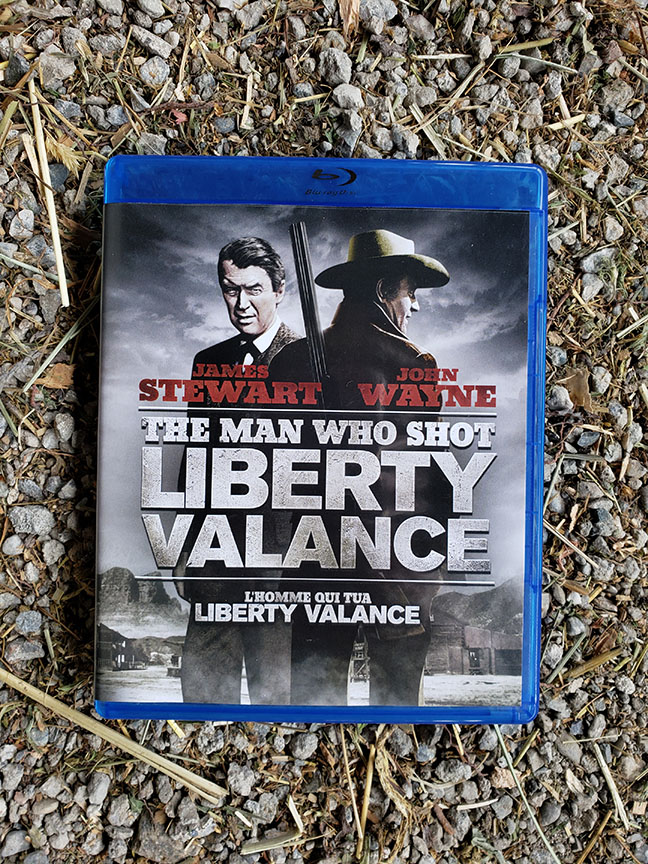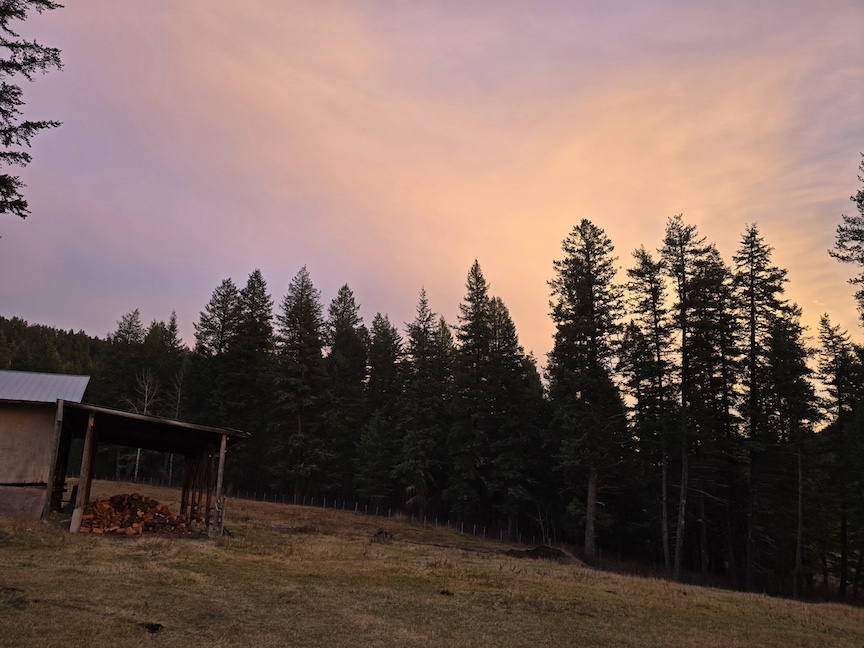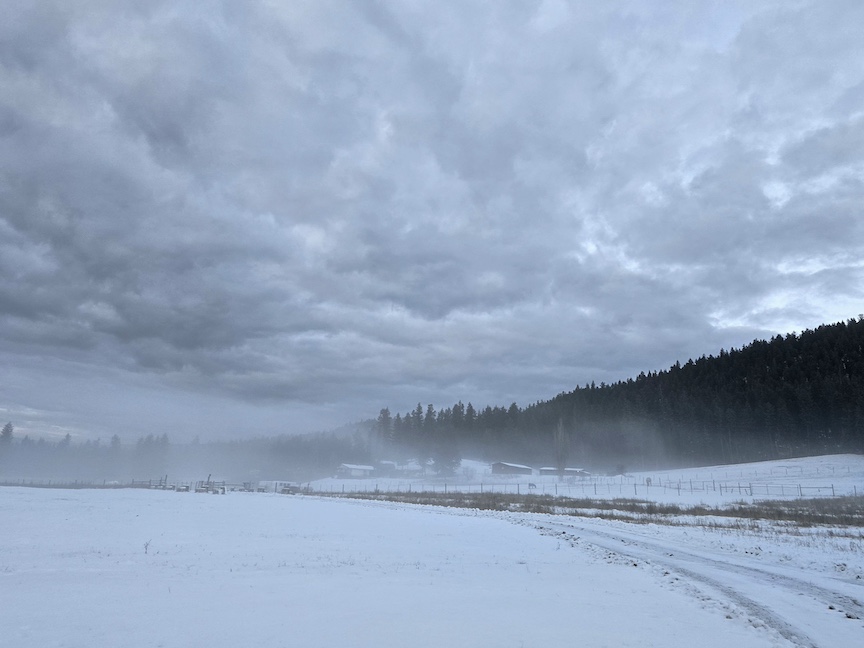Starring: John Wayne, James Stewart, Lee Marvin, Vera Miles
Director: John Ford
Released: 1962
Mood: If for some reason you’re reading this and you’re not a Western fan but your partner is and you want to watch a really good classic drama but you obviously have to appease the Western fan so you need a movie that seems Western but is secretly about lawyers.
“This is the West, sir. When the legend becomes fact, print the legend.”
Maxwell Scott (Carleton Young)
I didn’t think I had expectations for this movie, but apparently I did because it was NOTHING like I expected.
The Man Who Shot Liberty Valance is less of a Western, and more about politics in a small Western town. I said it. And I f*cking stand by it.
It’s weird, because Lee Marvin delivers a classic Western baddie as Liberty Valance, and John Wayne gives you the right kind of rugged cowboy as Tom Doniphon. But Jimmy Stewart is so loud and in-your-face as earnest attorney Ransom Stoddard that every scene feels like a courtroom drama.
About twenty minutes into the movie, I was like, “this reminds me of Mr. Smith Goes to Washington”. I didn’t even realize that Stewart played Mr. Smith, having only seen it once ages ago. But the way he could rant and rave about U.S. laws obviously stuck around in some corner of my brain, waiting for this occasion.
Stewart’s character, Ransom Stoddard, even frequently looked close to fainting from his efforts, reminiscent of Mr. Smith’s famous Senate floor flop. There’s also got a bit of a High Noon vibe.
This is one of those movies you’re supposed to see, a name everyone knows. It’s a good, classic black and white movie. I’m not going to argue that. But is it a good Western?

The Man Who Shot Liberty Valance offers a familiar ‘bad guy terrorizing small town’ plot with a few different angles. The movie opens with an aging senator (Jimmy Stewart) and his wife returning by train to a small town called Shinbone. The mood is immediately somber, and it’s revealed that they’re in town for a funeral.
The senator’s wife, Hallie (Vera Miles), runs into an older Black man named Pompey (Woody Strode), and they’re both obviously heartbroken over whoever’s in the box. Then an older gentleman named Link Appleyard (Andy Devine) takes her out to a burnt-out house and there are a lot of long looks into the distance and vague dialogue.
Meanwhile, the senator is pressured by the local press to explain why he’s in their little corner of the woods. Thus begins a flashback to 25 years earlier, when the senator was young attorney Ransom Stoddard, and was on a stagecoach that was robbed by the villainous Liberty Valance (Lee Marvin). Stoddard tried to stand up to Valance when he went for a woman’s necklace, and was beaten badly and left for dead.
Tom Doniphon (John Wayne) finds Stoddard and brings him into town for help, taking him right to the young Hallie’s house for some reason. With no money, Stoddard takes a job as a dishwasher and server at a restaurant, then somehow quickly opens a school and a law practice.
Of course, Valance comes to town. Stoddard won’t back down and wants to see him brought to justice, but Doniphon warns him that Valance will only respond to force. Stoddard yells at the men when they seem about to kill each other (and abuses a steak in the process). But you know there’s still going to be a showdown. With guns.

Here’s what confused the heck out of me. SPOILERS! I try not to do that, but in this case I have to talk about the end of the movie so please skip the bullet list if you don’t want to know.
- Lee Marvin and John F*cking Wayne both back down to being shouted at by a dishwasher – that’s so not right in a Western!
- There’s a love triangle (Doniphon loves Hallie, Hallie seems into Stoddard, Stoddard… loves politics) but Wayne isn’t charming enough or in enough scenes with his paramour, and Stewart is so rant-y that it’s hard to see chemistry between anyone
- There’s a great scene where Doniphon tries to give Stoddard shooting lessons, but it ends quickly and Stoddard takes off, so it doesn’t feel like either of them learned anything and it was mostly a prank (Stoddard rides away fuming and covered in paint)
- There wasn’t enough story around Liberty Valance to make it clear why he showed up and insisted on getting elected as a delegate for the statehood convention
- There wasn’t enough story around Liberty Valance, period!
- Doniphon makes his big reveal and you know he’s the real hero even though the town is celebrating Stoddard, but then the movie carries on without him and focuses on more politics; it felt like the climax became an afterthought
- The senator confesses that he never actually shot Liberty Valance, and the reporter decides not to run the story to preserve the ‘legend’ – WTF KIND OF REPORTING IS THAT?! I went to journalism school and that’s a f*cking story right there
- On the train home, the old senator asks his wife if she would like to retire back to Shinbone, and she says her heart has always been there and she’s been secretly wishing for it (let’s ignore that her husband doesn’t know her hopes and dreams)… the whole scene really seems like it’s implying that she married the wrong man and it’s hugely depressing
The last scene is basically pointing out that the senator has been living a lie, and then it just ends!
But as I said before, this is a GOOD MOVIE. Wayne and Marvin are both absolutely fantastic in their roles.
Wayne gives you a chill cowboy who doesn’t want to get involved, but when he does he REALLY gets involved. About 50% of his lines end with ‘pilgrim’, so if you’ve never seen the John Wayne people always impersonate, this is it.
Marvin easily switches between charming smiles and sinister glares, and he gives you a range I’m not used to seeing in older Westerns. And Edmond O’Brien is just flawless as town drunk newspaperman Dutton Peabody. He takes you to all kinds of places with his theatrics – boisterous intensity, belligerent antics, sharp intelligence, and a fierce determination.
We also need to talk about Pompey (Woody Strode). This was still a time when Black actors got minimal lines in movies (not that POC actors are treated equally now, but it was even worse in the ‘60s). But Strode does SO MUCH with his role. He’s the Inigo Montoya of the movie – every time a hero succeeds, it’s because Pompey was there to help. He does most of the work and gets no credit. His performance is beautiful, and one to watch in every scene.
Strode was also a former footballer, and did most of his own stunts.

And the moment I heard Andy Devine as the bumbling marshal Appleyard I got a big smile because I recognized the voice of Friar Tuck in Disney’s 1973 Robin Hood. It was so cool to see him live – and now that I’ve seen him, it seems like they drew Tuck to look a lot like Devine.
Apparently director John Ford was an absolute nightmare on set. He didn’t want John Wayne in the movie but was forced by the studio. So he spent the entire time insulting him, which Wayne then took out on Woody Strode.
Long story short (okay, not that short), I think you have to love one of these actors to stay into this story. Maybe that’s just me. But as a recently converted John Wayne fan and someone who was super excited for the movie, it felt like it went on for a long time and glazed over the best parts and best people.


